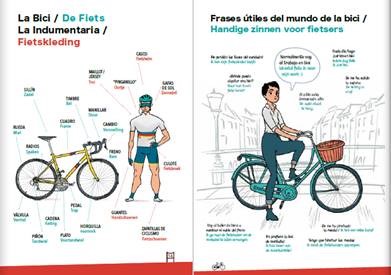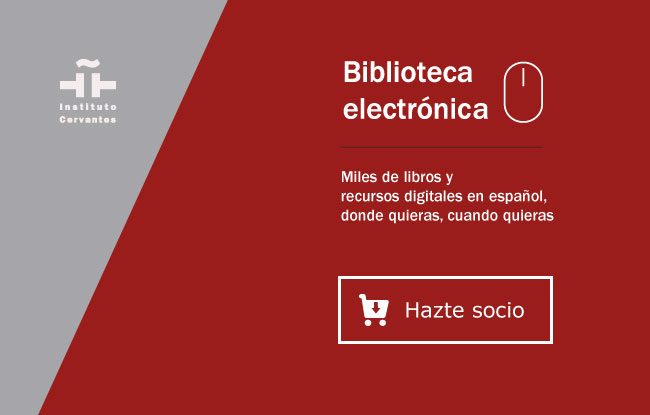Blog del Instituto Cervantes en Utrecht
Todo sobre nuestras actividades y servicios
Naturaleza muerta con brida. Homenaje a Torrentius / Stilleven met breidel. Homage aan Torrentius
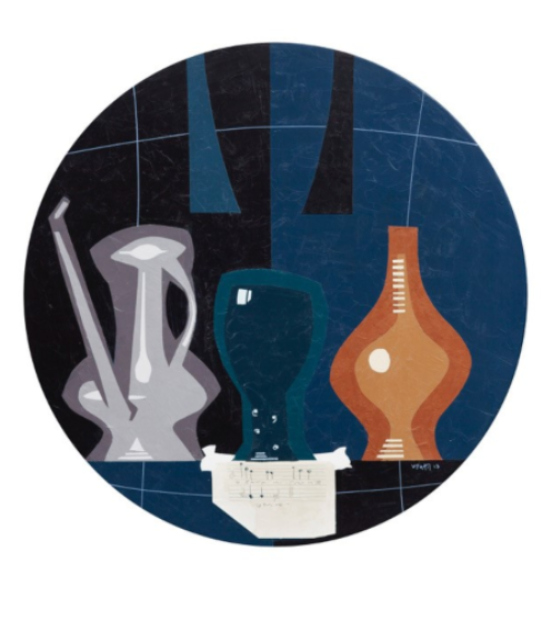
La exposición constituye el sorprendente y singular homenaje del artista contemporáneo español Lluis Ventós a una misteriosa obra de un pintor holandés del siglo XVII, Torrentius. Con sus pinturas, Lluis Ventós establece una conexión que vincula el realismo barroco con la abstracción de las vanguardias del siglo XX. La inspiración para el trabajo de Ventós es “Naturaleza muerta con brida” (1614), una pintura del enigmático artista holandés Johannes Simonsz van de Beeck (Ámsterdam, 1589-1644), más conocido como Torrentius, que se encuentra en el Rijksmuseum de Ámsterdam.
Torrentius abordó temáticas provocadoras (incluso obscenas) que le granjearon la enemistad de la Iglesia holandesa y le valieron varios años de cárcel, con un periodo intermedio en el que fue recibido y apoyado por el rey Carlos I de Inglaterra. Todas sus obras fueron destruidas a excepción de “Naturaleza muerta con brida”, que se exhibe actualmente en el Rijksmuseum.
El misterio en torno a la vida y obra de Torrentius ha servido de atracción para Ventós, quien presenta una reinterpretación de la naturaleza muerta del pintor neerlandés. Esta nueva interpretación introduce una cierta esquematización, resultado de una abstracción que acerca el tema a nuestro tiempo.
Stilleven met breidel. Homage aan Torrentius
De tentoonstelling omvat het verbazingwekkende en unieke eerbetoon van de hedendaagse Spaanse kunstenaar Lluis Ventós aan een mysterieus werk van een 17e-eeuwse Nederlandse schilder Torrentius. Met zijn schilderijen legt Luis Ventós een verband die het barokke realisme koppelt aan de abstractie van de avant-garde van de 20e eeuw. De inspiratie voor het werk van Ventós is Stilleven met breidel (1614), een schilderij van de enigmatische Nederlandse kunstenaar Johannes Simonsz van de Beeck (Amsterdam, 1589-1644), beter bekend als Torrentius, dat hangt in het Rijksmuseum in Amsterdam.
Torrentius was een schilder die provocerende (zelfs obscene) thema’s behandelde die hem de vijandschap van de Nederlandse kerk opleverde en hem enkele jaren in de gevangenis kostten, met een tussenperiode waarin hij werd opgevangen en gesteund door koning Karel I van Engeland. Al zijn werken werden vernietigd met uitzondering van Stilleven met breidel die momenteel in het Rijksmuseum te zien is.
Het mysterie rond het leven en werk van Torrentius bleek grote aantrekkingskracht te hebben op Ventós, die een herinterpretatie van het stilleven van de Nederlandse schilder presenteert. Deze nieuwe interpretatie introduceert een zekere schematisering, waarschijnlijk het resultaat van een abstractie die dit thema dichterbij onze tijd brengt.
Still life with a Bridle. Homage to Torrentius
The exhibition constitutes a surprising and singular homage of the Spanish contemporary artist Lluis Ventós to a mysterious work of a Dutch painter of the 17th century, Torrentius. With his paintings, Lluis Ventós establishes a connection that links baroque realism with the abstraction of the 20th century avant-garde. The inspiration for Ventós’s work is “Still Life with a Bridle” (1614), a painting by the enigmatic Dutch artist Johannes Simonsz van de Beeck (Amsterdam, 1589-1644), better known as Torrentius, which is housed in the Rijksmuseum in Amsterdam.
Torrentius tackled provocative (even obscene) themes that earned him the hostility of the Dutch Church and also several years in prison, with an intervening period in which he was received and supported by King Charles I of England. All of his works were destroyed except for «Still Life with a Bridle», which is currently on display in the Rijksmuseum.
The mystery surrounding Torrentius’ life and work has attracted Ventós, who presents a reinterpretation of the Dutch painter’s still life. This new interpretation introduces a certain schematization, the result of an abstraction that brings the subject closer to our time.
Club de lectura septiembre-diciembre 2020 / Leesclub september-december 2020
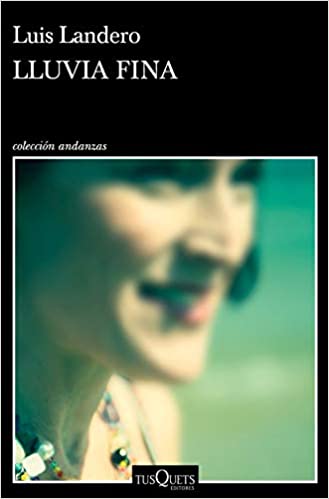
- 18/09/2020: Los recuerdos del porvenir, Elena Garro (México)
- 16/10/2020: Lluvia fina, Luis Landero (España)
- 20/11/2020: Plata Quemada, Ricardo Piglia (Argentina)
- 11/12/2020: Qué verguenza, Paulina Flores (Chile)
Información e inscripción / Informatie en registratie
Formulario de pago / Betalingsformulier
Más información / Meer infomatie
Los libros se comentan un viernes al mes de 10:00 a 12:00 en la biblioteca del Instituto Cervantes de Utrecht. Se requiere estar en posesión del carne de la biblioteca y tener un nivel de C1.
Todos los libros se encuentran en la biblioteca electrónica. ¡Te esperamos en la biblioteca del Instituto Cervantes de Utrecht!
De boeken worden één vrijdag per maand besproken van 10:00 tot 12:00 uur in de bibliotheek van het Instituto Cervantes Utrecht. C1-niveau van het Spaans is vereist.
Alle boeken staan in de digitale bibliotheek. We wachten op u in de bibliotheek van het Instituto Cervantes in Utrecht!
Diccionario de ciclismo español-neerlandés/ Spaans -Nederlands wielerwoordenboek / Spanish-Dutch cycling dictionary
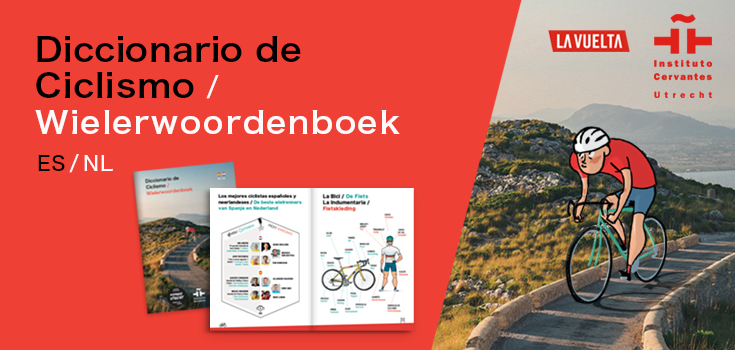
NOTA DE PRENSA -ESPAÑOL
El diccionario es uno de los proyectos que se incluían en el amplio programa de actividades diseñado con motivo de la salida oficial de La Vuelta 20 desde los Países Bajos (Utrecht y la región del Brabante Septentrional).
En Instituto Cervantes de los Países Bajos, en colaboración con La Vuelta y el comité organizador local de La Vuelta Holanda, presenta hoy el “Diccionario de ciclismo español-neerlandés”. Una herramienta destinada a los aficionados de ambos países, con el fin de facilitarles un primer contacto con el español desde la afición al ciclismo. Con ilustraciones y una presentación amable y lúdica, el libro ofrece una forma sencilla y práctica de acceso al idioma español -y al neerlandés – para aficionados y viajeros.
La idea de este “Diccionario de ciclismo español-neerlandés” surgió en diciembre de 2018, a raíz de la rueda de prensa celebrada en el Instituto Cervantes de Utrecht en la que Javier Guillén, director general de La Vuelta, y Jan van Zanen, alcalde de la ciudad, anunciaron que La Vuelta 20 comenzaría en los Países Bajos. Utrecht iba a ser protagonista de la presentación de equipos, la contrarreloj inaugural y la meta de la segunda etapa, que comenzaría en ‘s-Hertogenbosch, capital de la provincia de Brabante Septentrional. La tercera etapa recorrería la provincia con salida y meta en la ciudad de Breda.
El proyecto, que movilizó a tres ciudades e ilusionó a todo un país, se ha visto frustrado por la crisis sanitaria mundial provocada por la COVID-19. La Vuelta no saldrá de Holanda en 2020, pero este Diccionario, una idea del Instituto Cervantes apoyada tanto por La Vuelta como por el comité organizador local de La Vuelta Holanda, sí se va a publicar.
El “Diccionario de Ciclismo español-neerlandés”, basado en la idea del Diccionario de Fútbol coeditado en 2018 por el Instituto Cervantes de Shanghai y La Liga, quiere ser un símbolo de la amistad entre España y los Países Bajos y un homenaje al deporte del ciclismo, por la pasión que une a sus ciudadanos. Es un libro para tener a mano cuando los españoles amantes del ciclismo visiten los Países Bajos y cuando los aficionados holandeses acudan a las ediciones de La Vuelta en España y viajen por nuestro país -o por América Latina- para disfrutar de este deporte. De momento solo disponible en edición digital, el libro incluye un glosario útil, práctico y con ilustraciones que lo hacen ameno y divertido.
El director general de Unipublic, Javier Guillén, subrayó que este proyecto “se enmarca en una de las misiones principales de La Vuelta: llevar sus valores por todo el mundo”. “Somos uno de los eventos deportivos españoles más queridos y con más proyección internacional. Sentimos que es nuestro deber trasladar la cultura de nuestro país y de nuestro deporte más allá de nuestras fronteras. Este diccionario ciclista es una vía magnífica para alcanzar este objetivo y hay que agradecer al Instituto Cervantes la puesta en marcha de esta iniciativa”, señaló.
El Instituto Cervantes está presente en 45 países de cinco continentes, promoviendo la enseñanza y el estudio del español y difundiendo la cultura hispánica por el mundo. Su centro en los Países Bajos ha cumplido 25 años, siendo inaugurado poco después de su creación en 1991. “Estamos encantados con el trabajo realizado y muy agradecidos a nuestro centro de Shanghai por inspirar el modelo que hemos seguido. Muy contentos por haber conseguido sacar este proyecto adelante gracias al apoyo de La Vuelta y La Vuelta Holanda”, concluye Pilar Tena, directora del Instituto Cervantes de Utrecht.
PRESS RELEASE – NEDERLANDS
Het woordenboek is een van de projecten die waren opgenomen in het uitgebreide programma ter gelegenheid van de officiële start van de Vuelta 20 vanuit Nederland (Utrecht en Noord-Brabant).
Het Instituto Cervantes Utrecht presenteert, in samenwerking met La Vuelta en het lokale organisatiecomité van La Vuelta Holanda, vandaag het “Spaans- Nederlands Wielerwoordenboek”. Een handleiding bedoeld voor fans van beide landen, om het eerste contact met de Spaanse taal te vergemakkelijken vanuit hun voorliefde voor fietsen. Met illustraties en een vriendelijke en speelse presentatie biedt het boek een eenvoudige en praktische manier om toegang te krijgen tot het Spaans – én het Nederlands- voor fans en reizigers.
Het idee om dit “Spaans-Nederlands wielerwoordenboek” uit te brengen, ontstond kort na december 2018, datum van de persconferentie op het Instituto Cervantes te Utrecht, waarin Javier Guillén, CEO van La Vuelta en Jan van Zanen, burgemeester van de stad, aankondigden dat de Vuelta 2020 in Nederland zou starten. Utrecht zou de hoofdrol spelen bij de ploegenpresentatie, de tijdrit en de bestemming zijn van de tweede etappe, die zou
beginnen in ‘s-Hertogenbosch, hoofdstad van de provincie Noord-Brabant. De derde etappe zou door deze provincie gaan met start en finish in Breda.
Het project, dat drie steden mobiliseerde en het hele land blij maakte, is in het water gevallen door de wereldwijde gezondheidscrisis veroorzaakt door COVID-19. De Vuelta 2020 zal niet in Nederland starten, maar dit woordenboek, een idee van het Instituto Cervantes, ondersteund door zowel La Vuelta als La Vuelta Holanda, is nu klaar.
Het “Spaans-Nederlands Wielerwoordenboek”, gebaseerd op het idee van het voetbalwoordenboek dat in 2018 gezamenlijk gepubliceerd werd door het Instituto
Cervantes van Shanghai en La Liga, wil een symbool zijn voor de vriendschap
tussen Spanje en Nederland en een eerbetoon aan de wielersport, door de passie die burgers samenbrengt. Het is een handboek voor Spaanse wielerliefhebbers wanneer ze Nederland bezoeken en natuurlijk voor Nederlandse fans die naar Spanje komen voor de Vuelta of een vakantie in ons land – of Latijns-Amerika!- om te genieten van deze sport. Op dit moment alleen in digitale vorm, bevat het boek een nuttige, praktische woordenlijst, met illustraties die het aantrekkelijk en leuk maken om te gebruiken.
De algemeen directeur van Unipublic, Javier Guillén, benadrukte dat dit project «deel uitmaakt van een van de belangrijkste missies van La Vuelta: zijn waarden over de hele wereld uitdragen». “Wij zijn een van de meest geliefde Spaanse sportevenementen met de meest internationale uitstraling. We vinden dat het onze plicht is om de cultuur van ons land en onze sport buiten onze grenzen te brengen. Dit wielerwoordenboek is een geweldige manier om dit doel te bereiken en we moeten het Instituto Cervantes bedanken voor de uitvoering van dit initiatief ‘, zei hij.
Het Instituto Cervantes is aanwezig in 45 landen op vijf continenten om het onderwijs en de studie van de Spaanse taal te bevorderen en bij te dragen aan de verspreiding van de Spaanstalige cultuur over de hele wereld. Het instituut in Nederland werd kort na de oprichting in 1991 geopend en bestaat nu ruim 25 jaar. “We zijn erg blij met het resultaat en zijn ons instituut in Shanghai erg dankbaar voor het voorbeeld dat we hebben kunnen volgen.
Tussen al die gestrande projecten zijn we vooral heel tevreden dat het gelukt is om het te maken, dankzij de steun van La Vuelta en La Vuelta Holanda. Dit boek zal worden geactualiseerd en geperfectioneerd en er zal uiteindelijk zeker een papieren uitgave komen ”, aldus Pilar Tena, directeur van het Instituto Cervantes Utrecht.
RELEASE – ENGLISH
The dictionary is one of the projects originally designed to be a part of the vast activity program surrounding the now-cancelled La Vuelta 20 official departure from the Netherlands (Utrecht and the North Brabant region).
La Vuelta, in collaboration with the Netherlands Instituto Cervantes and the local La Vuelta Holanda organising committee, present the “Spanish-Dutch Cycling Dictionary”. This tool is designed for fans from both countries, and is intended to ease their first contact with the Spanish language, through a common love of cycling. Featuring illustrations as well as a pleasant and enjoyable presentation, the book offers a simple, practical way for fans and travellers alike to access the Spanish, and Dutch, languages.
The idea behind this “Spanish-Dutch Cycling Dictionary” came about in December 2018, as a result of a press conference held at the Cervantes Institute in Utrecht where Javier Guillén, General Manager of La Vuelta, and Jan van Zanen, the city’s Mayor, announced that La Vuelta 20 would commence in the Netherlands. Utrecht would be the protagonist of the teams presentation, the inaugural time trial and of the second stage finish-line, that would take off from ‘s-Hertogenbosch, capital of the North Brabant Province. The third stage would cross the province, with both the departure and the finish-line located in the city of Breda.
The project, which mobilised three cities and inspired an entire country, has been thwarted by the COVID-19 global health crisis. La Vuelta will not be departing from Holland in 2020, but this Dictionary, a Cervantes Institute idea backed by both La Vuelta and by the local La Vuelta Holanda organising committee, will still be published.
The “Spanish-Dutch Cycling Dictionary”, based on the idea of the Soccer Dictionary co-edited in 2018 by the Cervantes Institute in Shanghai and La Liga, wishes to be a symbol of friendship between Spain and the Netherlands and also a homage to cycling, and to the passion that unites its citizens. This book will be useful to have in hand when Spanish cycling fans visit the Netherlands and when Dutch fans attend La Vuelta editions in Spain and travel throughout our country – or through Latin America – in order to enjoy this sport. It is currently only available digitally and includes a practical glossary, along with illustrations, which make it pleasant and fun.
The General Manager of Unipublic, Javier Guillén, highlighted that this project “falls within the framework of one of La Vuelta’s main missions: to transmit its values all over the world”. “Ours is one of the most cherished Spanish sporting events, with the widest international exposure. We feel that it is our duty to transmit our country’s culture and that of our sport beyond our borders. This cycling dictionary is a magnificent way to do so and we are thankful to the Cervantes Institute for launching this initiative”, he added.
The Instituto Cervantes is present in 45 countries on five continents, promoting the teaching and study of the Spanish language, while disseminating Hispanic culture worldwide. Its centre in the Netherlands has recently turned 25, having been inaugurated shortly after its creation in 1991. “We are thrilled with the work that has been carried out and very grateful to our Shanghai centre for inspiring the model we have followed. I am really happy to have successfully fulfilled this project thanks to the support of La Vuelta and La Vuelta Holanda”, concludes Pilar Tena, Director of the Instituto Cervantes in Utrecht.
Biblioteca electrónica / Digitale Bibliotheek / Digital Library
ESPAÑOL
Miles de recursos en línea en español: 14.000 libros digitales, 400 audiolibros, 40 recursos electrónicos (bases de datos, diccionarios y enciclopedias) y un club de lectura virtual.
Desde cualquier lugar, a cualquier hora, con cualquier dispositivo: la biblioteca electrónica del Instituto Cervantes está accesible las 24 horas del día, los 365 días del año, con solo una conexión a Internet.
Tanto si eres hispanohablante como si eres estudiante de español de cualquier nivel, te puede interesar. Por tan sólo 12 euros al año, todo un mundo en español. ¿Te animas?
- Acceso Biblioteca Electrónica
- Inscripción: https://clic.cervantes.es/es/biblioteca_electronica
- Contacto: biblioteca.electronica@cervantes.es
** Los socios de la biblioteca del Instituto Cervantes de Utrecht tienen acceso gratuito a la biblioteca electrónica.
NEDERLANDS
Duizenden digitale bronnen in het Spaans: 14.000 e-books, 400 luisterboeken, 40 online bronnen (databases, woordenboeken, encyclopedieën) en een virtuele leesclub.
Overal, altijd en op elk apparaat: de online bibliotheek van het Instituto Cervantes is 24 uur per dag, 365 dagen per jaar toegankelijk. Je hebt slechts een internetverbinding nodig.
Interessant voor iedereen, voor elk niveau, of Spaans nu je moedertaal is of dat je het net aan het leren bent. Voor slechts 12 euro per jaar, een hele nieuwe wereld in het Spaans. Maak gebruik van deze aanbieding!
- Toegang Digitale Bibliotheek
- Opschrift: https://clic.cervantes.es/es/biblioteca_electronica
- Contact: biblioteca.electronica@cervantes.es
**Bibliotheekleden van het Instituto Cervantes Utrecht hebben gratis toegang tot de online bibliotheek.
ENGLISH
Thousands of online resources in Spanish: 14.000 digital books, 400 audiobooks, 40 electronic resources (databases, dictionaries, encyclopedias) and a virtual reading club.
From any place, at any time, with any kind of device: the Instituto Cervantes’ electronic library is accessible 24 hours a day, 365 days a year, with just an internet connection.
Whether you are a Spanish speaker or a student of Spanish at any level, you may be interested! For only 12 euro per year, a whole world in Spanish at your fingertips. Don’t miss out!
- Acces Digital Library
- Inscription: https://clic.cervantes.es/es/biblioteca_electronica
- Contact: biblioteca.electronica@cervantes.es
** Members of the Instituto Cervantes Utrecht library have free access to the Digital Library
Cien años de Miguel Delibes / Honderd jaar Miguel Delibes
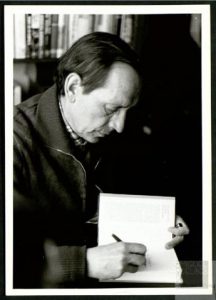
Miguel Delibes (1920-2010) es uno de los escritores españoles más importantes del siglo XX. Su interés por retratar el pueblo castellano, su crítica social y el amor que sentía por la naturaleza hacen, junto con un estilo sencillo y cuidado, que sea una figura clave en la literatura española, con títulos como El camino o Cinco horas con Mario.
Este año queremos celebrar el centenario de su nacimiento con dos vídeos-conferencia en nuestro canal de YouTube que hablen sobre él, sobre su vida y su trayectoria literaria, prestando especial atención a los personajes femeninos en su narrativa.
Laura Bergen es graduada en Filología hispánica por la Universidad Complutense de Madrid y estudiante de máster en la Universidad de Ámsterdam. Apasionada de Delibes, tanto su trabajo de fin de grado como su tesis de máster están especializados en la obra del autor. También es correctora y lectora editorial.
Miguel Delibes (1920-2019) is een van de belangrijkste Spaanse schrijvers van de 20e eeuw. Zijn belangstelling voor het volk uit Castilië, maatschappelijke kritiek en liefde voor de natuur, samen met zijn eenvoudige maar complete schrijfstijl, maken hem een essentiële figuur in de Spaanstalige literatuur, met boeken als El camino (De weg) of Cinco horas con Mario (Vijf uren met Mario).
Dit jaar is het precies honderd jaar geleden dat hij geboren werd, en dat willen we graag vieren met een miniserie over hem, bestaande uit twee video’s, te zien via ons YouTube kanaal, over zijn leven en werk, met speciale aandacht voor de vrouwelijke personages in zijn romans.
Laura Bergen heeft Spaanse taal en literatuur gestudeerd aan de Universidad Complutense van Madrid, en is masterstudent aan de Universiteit van Amsterdam. Vanwege haar passie voor Delibes, staat zijn werk centraal in zowel haar bachelorscriptie als masterscriptie. Daarnaast is zij corrector en proeflezer voor uitgeverijen.
